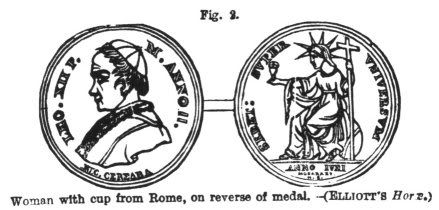quantumfaith
Active Member
Reading in Isaiah, today in Chapter 14:
Question 1: Is this scripture a "duble entendre" meant to address "lucifer" and his fall? Or is it simply a prophetic indictment against Babylon?
Question 2: What are some of the reasons that Babylon plays such a significant role in the representation of wickedness, as opposed to other nations and empires?
Question 3: For you "archaelogical" types. Have there been any definitive discoveries as to the location of ancient Babylon?
Thanks in advance. Trying to give some context to my reading of Isaiah.
Question 1: Is this scripture a "duble entendre" meant to address "lucifer" and his fall? Or is it simply a prophetic indictment against Babylon?
Question 2: What are some of the reasons that Babylon plays such a significant role in the representation of wickedness, as opposed to other nations and empires?
Question 3: For you "archaelogical" types. Have there been any definitive discoveries as to the location of ancient Babylon?
Thanks in advance. Trying to give some context to my reading of Isaiah.

